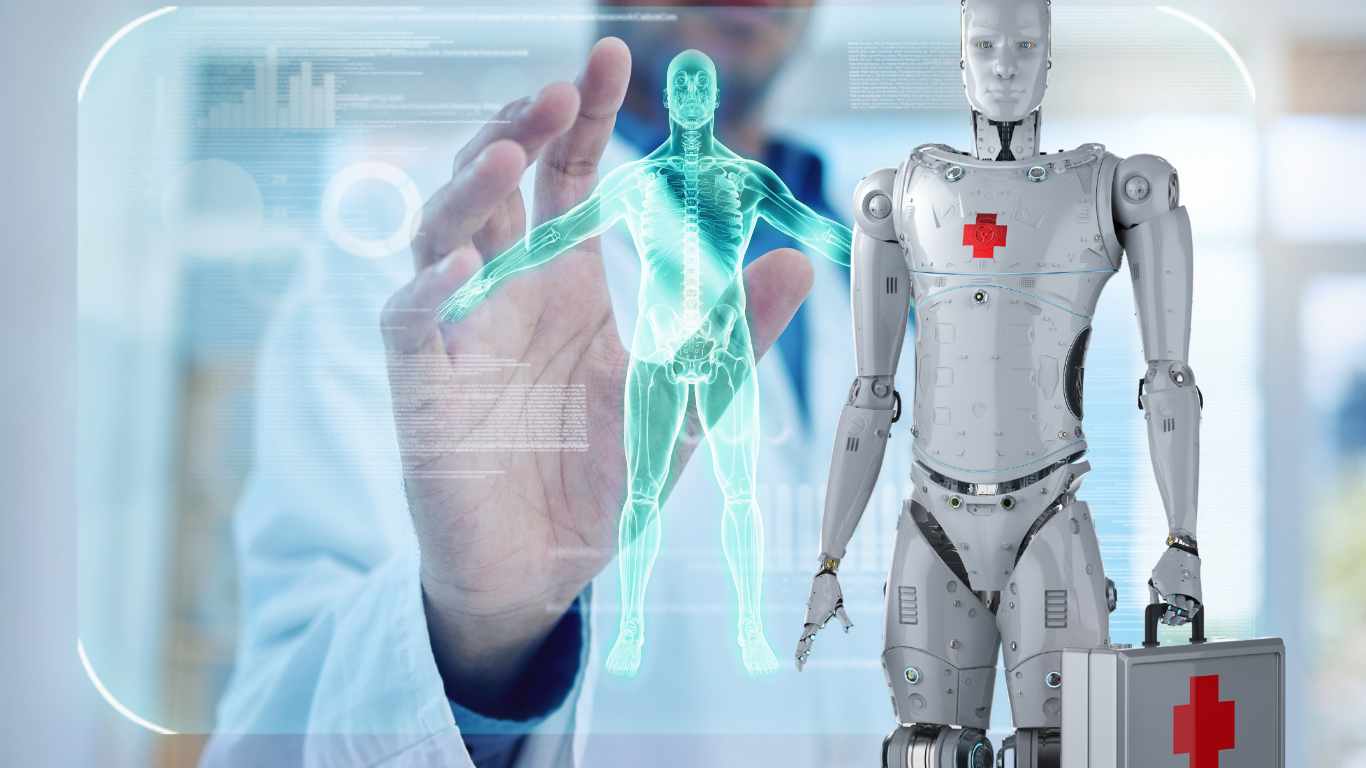Artificial intelligence (AI) is revolutionizing healthcare, promising enhanced patient outcomes and streamlined processes. However, as AI becomes more prevalent, questions arise about its effect on the role of doctors. Will AI replace doctors entirely? Let’s delve into the complexities of this issue.
How AI Shapes Healthcare
AI revolutionizes healthcare delivery, offering real-time analysis of medical images like X-rays and MRIs. Deep learning algorithms enable AI to identify abnormalities, aiding doctors in making accurate diagnoses promptly, thereby improving patient outcomes. Moreover, AI analyses patient data to predict health risks, empowering doctors to provide personalized care and preventive measures.
The Complex Impact on Job Security
AI’s integration into healthcare presents a double-edged sword for doctors’ job security. While enhancing patient care for some, it poses a potential threat to others. In radiology, AI aids in image analysis, augmenting diagnostic accuracy but potentially displacing radiologists. Similarly, in cardiology and oncology, AI’s ability to process vast datasets may lead to job displacement despite improving personalized care.
Adapting Medical Education for an AI Future
Medical education must evolve to equip future doctors for an AI-driven healthcare landscape. Integrating AI training into curricula provides essential hands-on experience, ensuring proficiency in leveraging technology for patient care. Additionally, emphasizing adaptability and empathy prepares doctors to navigate evolving roles while maintaining human connection with patients. To learn about how to make AI useful for medical students, watch the Med Motivation Podcast episode covering this topic.
Human Skills Unmatched by AI
Despite AI’s advancements, certain human skills remain irreplaceable in healthcare. Empathy, critical thinking, and creativity are indispensable qualities that foster compassionate care and innovative problem-solving. AI lacks the capacity for genuine empathy and creative thinking, underscoring the enduring value of human-centric healthcare.
The integration of AI into healthcare offers immense potential but also raises concerns about the future of medical practice. While AI enhances diagnostic accuracy and personalized care, its widespread adoption may challenge the job security of doctors in certain specialities. Nevertheless, the irreplaceable human skills of empathy, critical thinking, and creativity ensure doctors’ enduring relevance in an AI-driven healthcare landscape. Embracing AI while nurturing human-centric care is key to navigating this transformative era in medicine. In short, will AI replace doctors? The answer is NO.




Leave a Reply